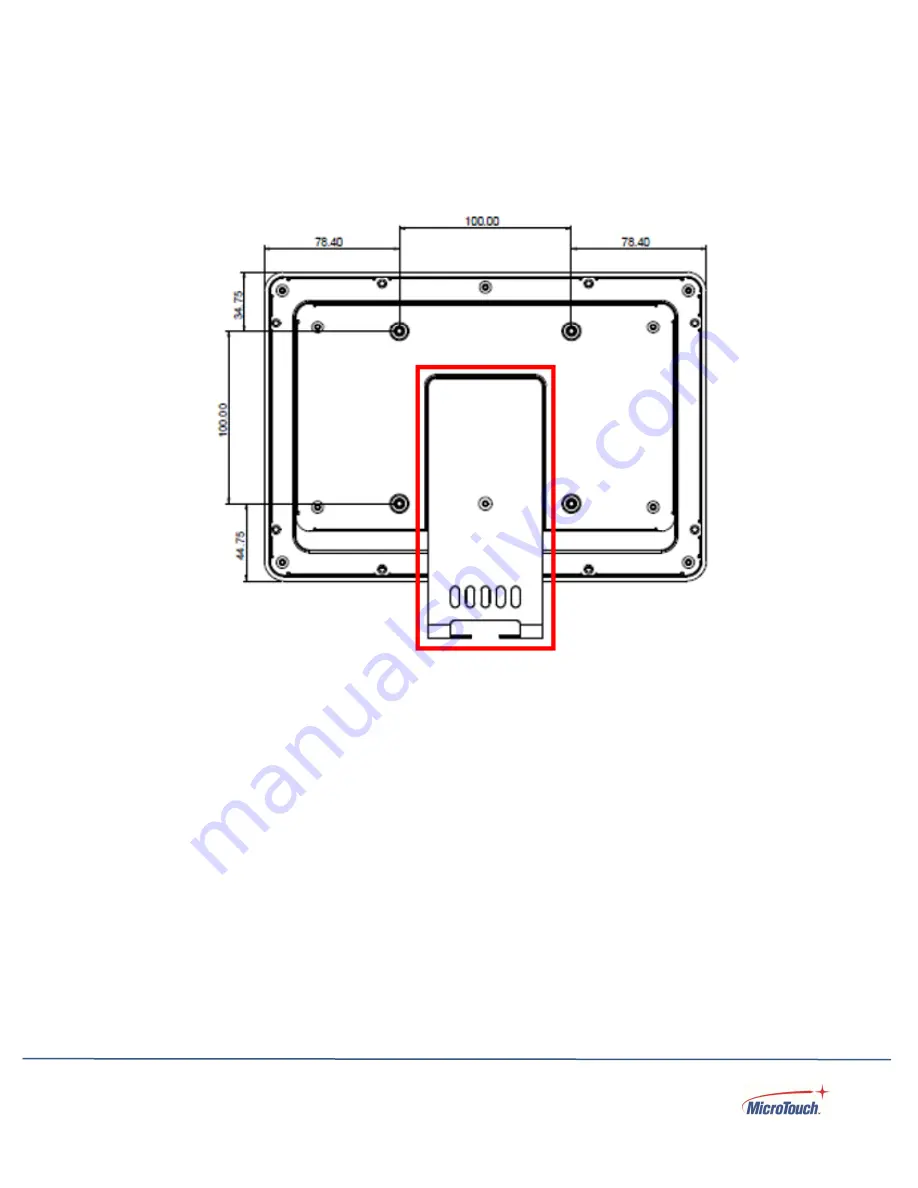
14
Configuration and Cable Options
A cable management bracket, outlined in red below, is attached to the back of the monitor:
It has five cable slots and a central opening below, centered. The bracket, attached by a single
screw, can be removed if desired to facilitate cable connections, then reattached. The slots can hold
smaller diameter cables; larger diameter cables can be nested within the confinement area.
Power is supplied by the included AC-to-DC
power supply’s fixed 12 volt DC cable connector. The
included 1.8 m long power cord is used to connect the monitor’s AC to DC converter to an AC wall
outlet. Plug the DC barrel connector into the DC jack on the monitor and tighten the nut to secure the
cable. Plug the AC power cable female connector into the receptacle on the power converter, then
plug the male connector of the AC cable into a wall outlet.
Connect the included USB cable from the monitor’s touch output to the computer’s USB Type-A port.
Connect the OSD wired remote cable to the RJ45 connector.
DP, HDMI and VGA video cables are included, and any of the three may be used to connect the video
signal. Either DP or HDMI is preferred, as they are digital video signals. VGA may, in some cases,
require some video setting adjustments. Also, the audio output is not active when VGA is in use.










































